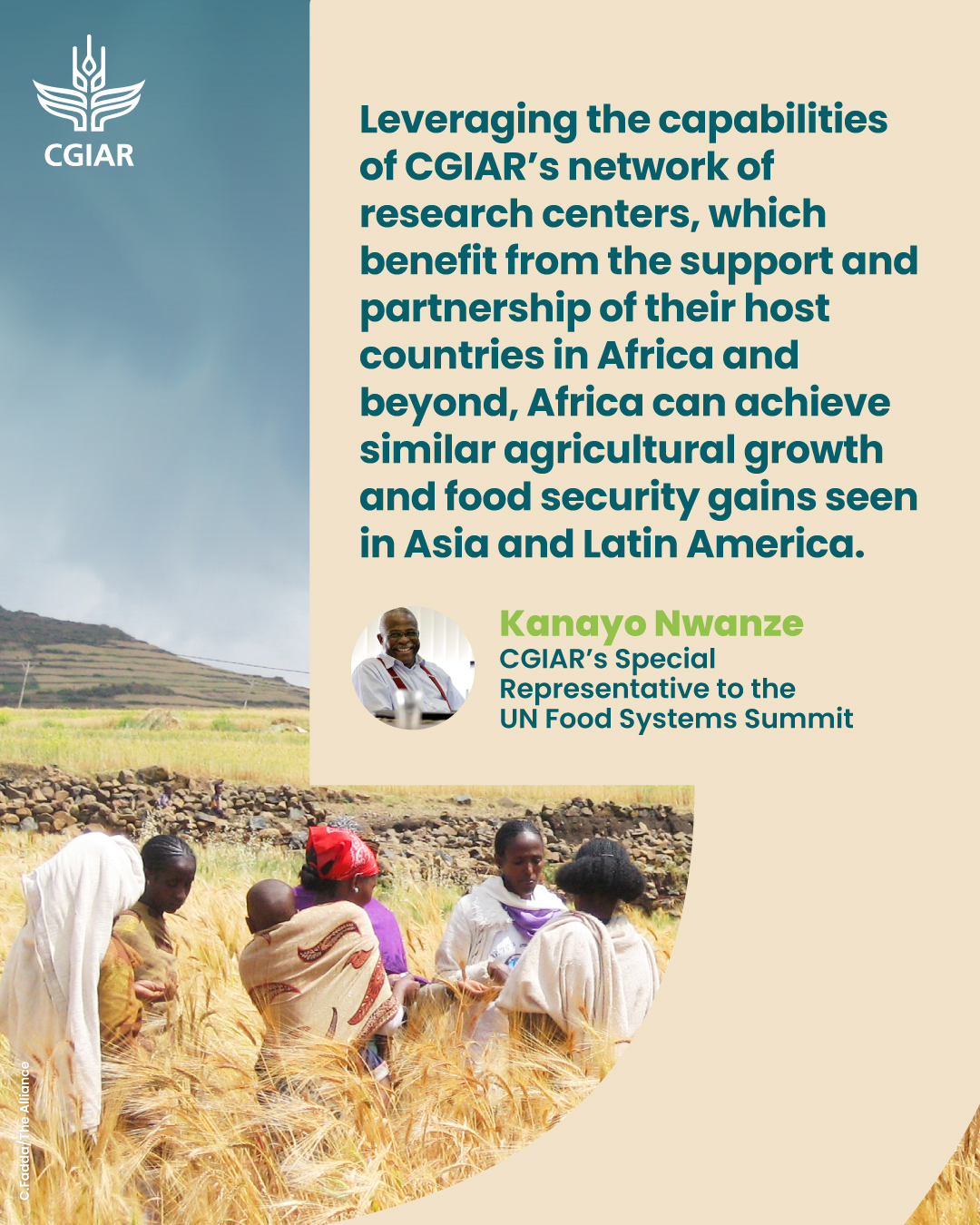

Africa is in a race against time on food security and the stakes could not be higher. The situation is unprecedented in my four decades of experience working in agricultural research and development.
We are faced with the longest drought in over 40 years, leaving 80 million people in the Horn of Africa with uncertain access to adequate nourishment. In my home country of Nigeria, recent flooding – the worst in a decade – has destroyed vital food supplies in Africa’s most populous nation. Hunger is again stalking the continent.
Africa’s food security is squeezed from two sides since the continent has both the lowest agricultural productivity of any region and the fastest population growth. Yields of everything from wheat to rice to cassava are well below the global average, reflecting the fact that millions of smallholder farmers lack access to the basic tools and skills that could lift them beyond subsistence.
The short-term outlook is bleak. Regional conflicts, extreme weather events and economic instability are all exacerbating the food crisis. And Russia’s invasion of Ukraine has driven up global prices for food, fuel and fertilizer, limiting the ability of African countries to finance vital imports.
Despite this, there remains an enormous untapped opportunity to put Africa’s food security on a sounder footing. The economic case for action is compelling. Investments in agricultural innovations have been shown to generate returns 10 times the amount initially invested.
By rolling out agricultural solutions that are known to improve productivity – from better seeds and fertilizers to early warning systems and training for growers – farms across Africa can increase output and build long-term resilience.
According to one analysis, Africa could produce two to three times more cereals and coarse grains, primarily by improving crop yields and reducing post-harvest losses. Even a fraction of that improvement would transform the continent’s food security situation and slash its current alarming dependence on imports.
The window for action, however, is limited and the need to implement change is urgent. African nations need to move away from dependency on development assistance, they need to significantly invest in agricultural research and development and for the near term, they need to select and fast-track interventions with the greatest potential to deliver both immediate gains and sustainable improvements in agriculture. This is essential to meet the demographic challenges of the years ahead.
Encouragingly, leading African institutions are now coming together to help make these productivity gains a reality.
The African Development Bank (AfDB), the African Union, the Forum for Agricultural Research in Africa and CGIAR – the world’s largest agricultural research and innovation network, have recently committed to close cooperation to take African agriculture to the next level. This is welcome news.
The aim – to empower African farmers to better feed their communities – is simple, yet the prize is great. The immediate priority is to deploy proven tools at the scale of tens of millions of farmers. It is a goal that is eminently achievable. In the last three years, for example, the Technologies for African Agricultural Transformation (TAAT) scheme, which is supported by the African Development Bank and implemented by CGIAR, has delivered climate-smart seeds to 12 million farmers in 27 countries. Breeding better crop varieties is just one of a range of transformational innovations that are needed to ensure Africa’s future food security, ranging from improvements in soil fertility to better livestock management. It does not stop there, for any holistic solution it will be critical to maintain investment in research, to improve resilience to future shocks.
Leveraging the capabilities of CGIAR’s network of research centers, which benefit from the support and partnership of their host countries in Africa and beyond, Africa can achieve similar agricultural growth and food security gains seen in Asia and Latin America.
The transition to a more unified and integrated “One CGIAR” is positioning the organization to tackle increasingly complex and interconnected challenges to food security and deliver holistic solutions to smallholder farmers everywhere. I believe that smallholder farmers in Africa will benefit most from an integrated CGIAR working in partnership with African research and innovation institutions. That is why I, along with other African stakeholders and partners of CGIAR, support the call from its country, regional and funding constituents, for CGIAR Centers and other parties to endorse in December an agreement that puts the integration on a clear path forward.
Sadly, the world is not on track to meet the UN Sustainable Development Goal of zero hunger by 2030 – and it is people in Africa who will bear the brunt of this policy failure. That is all the more reason to deploy proven technologies that can transform the fortunes of Africa’s farmers today, while maintaining critical investment in research that will provide resilience to future shocks.
Now is the right time for African decision-makers to make the smart investment decisions needed to get appropriate technologies to their farmers at scale.
